Search
Search Results
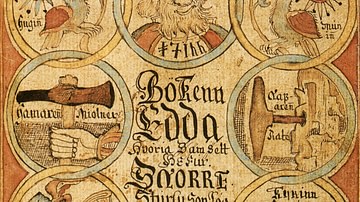
Definition
Edda
Edda is a term used to describe two Icelandic manuscripts that were copied down and compiled in the 13th century CE. Together they are the main sources of Norse mythology and skaldic poetry that relate the religion, cosmogony, and history...
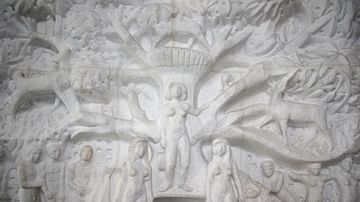
Article
Viking Prophecy: The Poem Völuspá of the Poetic Edda
The Völuspá (Old Norse: Vǫluspá) is a medieval poem of the Poetic Edda that describes how the world might have come into shape and would end according to Norse mythology. The story of about 60 stanzas is told by a seeress or völva (Old Norse...
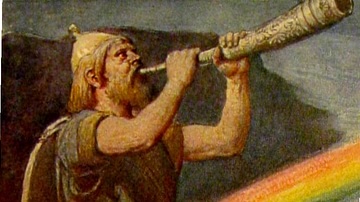
Definition
Heimdall
Heimdall is a mysterious deity of Norse mythology whose main attribute refers to guarding the realm of the gods, Asgard, from his high fortress called Himinbjörg found at the top of Bifröst, the rainbow bridge. He has the might of sea and...
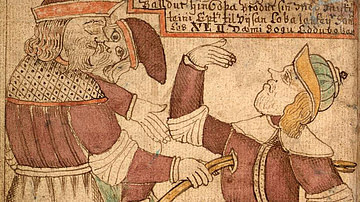
Definition
Baldr
Baldr is a god in Norse mythology associated with light, wisdom, and courage, although he is never specifically defined as the god of any of these. He is best known for his dramatic death, which heralds the coming of Ragnarök, the end of...
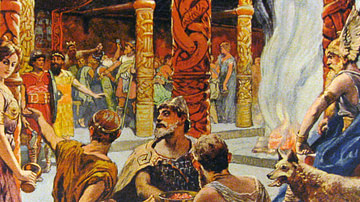
Definition
Norse Mythology
Norse mythology refers to the Scandinavian mythological framework that was upheld during and around the time of the Viking Age (c. 790- c. 1100 CE). Complete with a creation myth that has the first gods slaying a giant and turning his body...
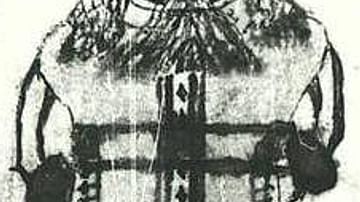
Definition
Hoenir
Hoenir or Hönir (Old Norse: Hœnir or Hønir) is a very shadowy god figure in Norse mythology, who joins the gods Loki and Odin on a couple of occasions in the old texts. He seems to have attributes of creation and prophecy, and his name might...
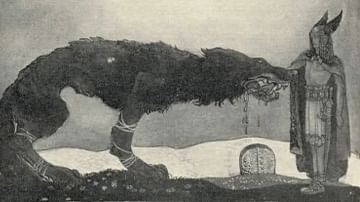
Definition
Tyr
Tyr (Old Norse: Týr) is one of the battle-gods of Norse mythology, according to the main sources on the topic, the literary works called the Eddas. He takes part in two adventures, one involving a monster to whom he sacrifices his hand, and...
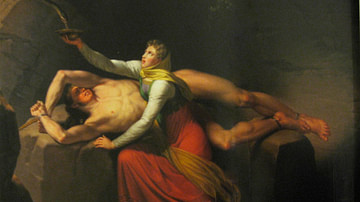
Definition
Loki
Loki is a god in Norse mythology who is often simply described as the 'trickster' god for his love of playing pranks on both his fellow gods and his or their opponents. Sworn brother of Odin and often the one to dig the other gods out of...
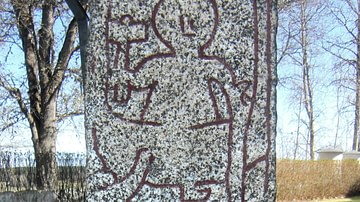
Definition
Midgard
Midgard is the realm of human beings in Norse mythology. The Old Norse word garðr literally means an enclosure (yard), and miðr (middle) refers to its position as a circle with both an interior ocean, and an outer ocean beyond which there...
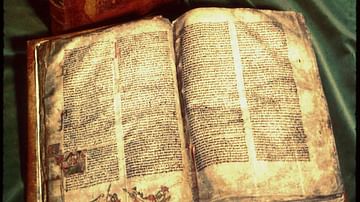
Image
Codex Regius of the Poetic Edda
The Codex Regius of the Poetic Edda is the oldest and most comprehensive extant source of Norse mythology. 14th century CE. It is housed at the Arni Magnusson Institute of Learning in Reykjavik, Iceland.